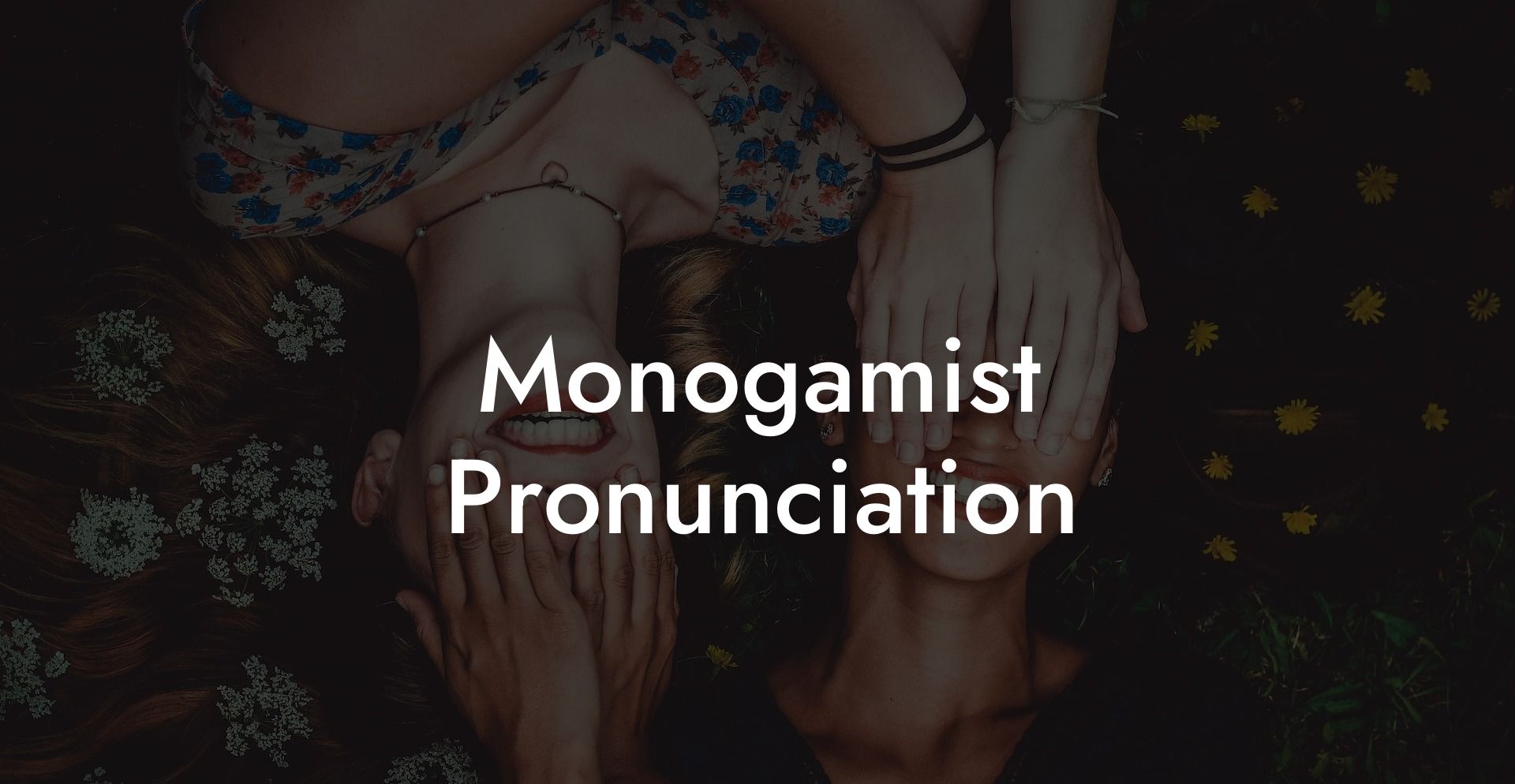Ah, the age-old debate about monogamy. This is a subject that has been discussed, dissected, and tossed around in the air for centuries. Monogamy, according to the Oxford Dictionary, is defined as “the practice or state of being married to or having a sexual relationship with only one partner.” However, the meaning of monogamy can be more complex and layered, with various beliefs and practices surrounding this relationship structure. Understanding what monogamy is or, more specifically, how to correctly pronounce "monogamist" will empower you with a more profound understanding of this relationship style.
Monogamist Pronunciation Table of Contents
With the growing awareness and an increase in people exploring non-monogamous relationships, knowing how to properly pronounce "monogamist" is becoming essential. In this article, we will discuss the pronunciation of monogamist, its history, and its relevance in today's society. Also, this will give you another reason to further explore The Monogamy Experiment, share this post, and dive into the exciting world of relationship structures.
Pronunciation and History
To correctly pronounce "monogamist," one should enunciate it as "muh-nog-uh-mist." Here is the breakdown:
The ‘mo’ in monogamist rhymes with ‘go.’
The ‘nog’ in monogamist has a short "o" sound, similar to the word ‘dog.’
The ‘amist’ in monogamist has a short "a" sound, such as in the word ‘list.’
Monogamy as a social construct has its roots in ancient history. The term "monogamy" derives from the Greek words "monos," meaning "single" or "alone," and "gamos," meaning "marriage." The concept of monogamy was initially practiced for pragmatic reasons. Marrying one partner at a time, as opposed to polygamy or polyamorous relationships, was advantageous in terms of inheritance rights, social status, and property ownership. As societies evolved, so did the concept of monogamy, with further layers of emotional, sexual, and cultural significance added to the practice.
Monogamist Pronunciation Example
When discussing monogamy, we often associate it with marriage or committed relationships. For instance, John and Jane have been monogamists for ten years since they married. They chose to commit to each other exclusively, both emotionally and sexually. John and Jane's decision to be monogamists reflects their personal beliefs and values, shaping their relationship based on mutual respect, trust, and love.
While monogamy may be the predominant relationship structure in many societies, differentiating factors may arise. These can include religious beliefs, cultural practices, personal preferences, or societal norms. For example, in some societies or religious faiths, polygamy may be more widely practiced and accepted. The diverse range of relationship structures showcases human beings' adaptability, flexibility, and ingenuity in shaping our interactions with one another.
The Relevance of Monogamy Today
In modern times, monogamy and the monogamist lifestyle remain firmly embedded in many societies. Although alternative relationship structures are becoming more accepted and normalized, monogamy remains the primary relationship structure for many people.
Understanding the monogamist pronunciation and the concept of monogamy enables meaningful discussions about relationships, allowing for a broader perspective that encompasses various relationship styles. Exploring and understanding monogamy is not just about adhering to social norms but also about self-discovery and the fluidity of relationship structures that cater to people's emotional and sexual needs.
Now that you hold the key to properly pronounce "monogamist" and have delved into the concept, history, and significance of monogamy, we encourage you to share this enriching article and the fascinating world of The Monogamy Experiment. Enhance your understanding of monogamy, non-monogamy, and polyamory by continuing to explore more guides and articles on our blog!













